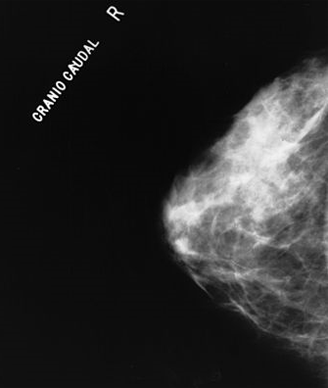Physician Age May Affect Beliefs About Breast Cancer Screening
A physician’s age may have an effect on his or her opinions about the effectiveness of breast cancer screening methods, including self-exam and mammography.
Physicians had differing opinions on the effectiveness of mammography screening

A physician’s age may have an effect on his or her opinions about the effectiveness of certain breast cancer screening methods, including self-examination and mammography, the results of a small study indicated.
In the study, older physicians were more likely to believe self breast examination was effective and less likely to feel that mammography at all ages was effective.
“Conflicting recommendations on breast cancer screening from respected organizations can be confusing for physicians and cause incongruences in patient protocol, which is exhibited in this study,” wrote researchers led by Erika Faircloth, OMS, II, of the New York Institute of Technology (NYIT) College of Osteopathic Medicine, and colleagues, in a poster presented at the 32nd Annual Miami Breast Cancer Conference held February 26-28 in Miami Beach, Florida.
Faircloth and colleagues administered a survey created by the National Cancer Institute to members of primary care specialty associations including the American College of Osteopathic Family Physicians, the New York College of Osteopathic Medicine Educational Consortium database, the New York State Osteopathic Medical Society database, and the alumni database of the NYIT-College of Osteopathic Medicine. The survey assessed physicians’ awareness of breast and cervical cancer screening.
Results of the study showed significant differences in beliefs about breast cancer screening practices based on physician age. Specifically, the mean age of physicians who found self breast examination effective was significantly older than that of physicians who found it ineffective (44.1 vs 39 years; P = .01). The mean age of physicians who found mammography in women aged 40 to 49 years to be effective was significantly younger than that of physicians who found screening in this age group ineffective (41.9 vs 51 years; P < .01).
Finally, the mean age of those physicians who found mammography effective in women 50 years or older was 42.4 years compared with 50.8 years for those who found mammography ineffective in women of this age (P = .02).
“It is possible that the age difference among physicians in regards to breast cancer screening beliefs could be due to insufficient knowledge of the risks and benefits of all breast cancer screening modalities,” Faircloth and colleagues wrote. “This study helps to demonstrate the current discordance between clinical providers; we believe that we should work toward a set standard of care to improve physician cohesiveness, patient adherence, and ultimately, to improve patient outcomes.”
Reference
Faircloth E, Pergament K, Laurent B, et al. Breast cancer screening: beliefs about effectiveness based on age of physicians. Paper presented at: 32nd Annual Miami Breast Cancer Conference; February 2015; Miami, Florida.